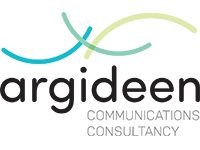Now more than ever silence on inequality, in all its forms, is unacceptable.
I feel strongly that on this topic, actions speak louder than words. Talking about diversity and inclusion in broad brush strokes and support for #BlackLivesMatter isn’t good enough. People want to see and hear about what businesses are actually doing to create workplaces where all are equal and have equal opportunities. Anything less could be seen as platitudes.
My little business isn’t in a position to show a photo of a diverse executive team or board, nor are we large enough to point to a robust development programme to support minority groups, or established HR sanctions for discrimination, but we are trying to play our part by listening, learning and advocating. Reverse mentoring is something we all can do to actively listen and learn.
I first encountered the concept of ‘reverse mentoring’ while I worked at GSK. I was a member of the global Research and Development (R&D) Leadership Team and our Diversity Council gave everyone on the team an opportunity to participate in a Reverse Mentoring programme to learn from a diverse group of colleagues how we could create a truly inclusive workplace.
Here’s how it worked. I put myself forward via the Diversity Council and invited people across the 10,000 person R&D organisation to sign up as my reverse mentors. In the end I had a network of 14 people who generously gave their time to help me understand the issues, challenges and opportunities they encountered as members of a minority group. We met monthly and I did a lot of listening and learning.
Here’s some of what I learnt. I learnt that resource groups and dedicated development programmes to support minority groups are important, but they are only the first step. I learnt that actions speak louder than words e.g. it is important to look at who gets recognised and promoted. I learnt that diversity of thought, experience and perspective is also an important part of the mix, in addition to diversity in race, gender, sexual orientation, age, disability and socio-economic backgrounds. I learnt that inclusive workplaces actively seek out diversity, they don’t focus on achieving quotas (but they do track hiring and retention too). I also learnt how I could use my voice to make a positive difference.
I loved it. It made me question my own biases and take action.
I’m now trying replicate it in my own business. I’ve started to build my own reverse mentoring network – people from different walks of life and minority groups who challenge my thinking and help me see different perspectives.
The first member of my reverse mentoring network was my 13-year-old niece. She’s wise beyond her years and asks great questions, most of which start with “why”?
Be a force for good. Work out what you can do to ensure change.


Recent Comments